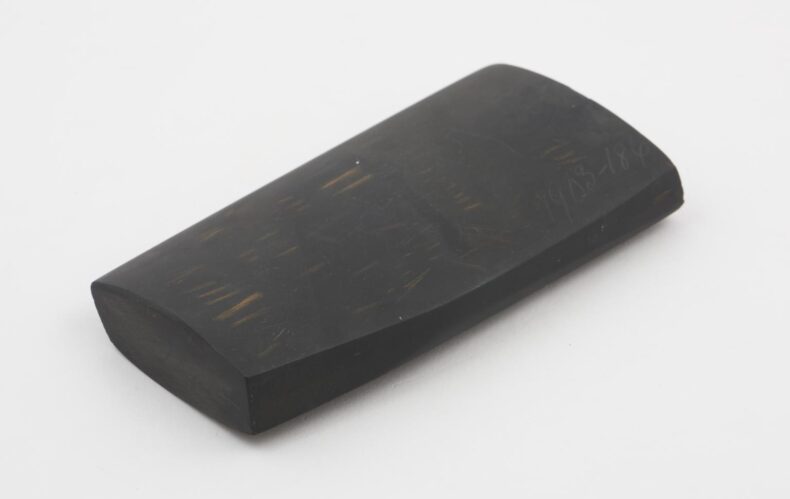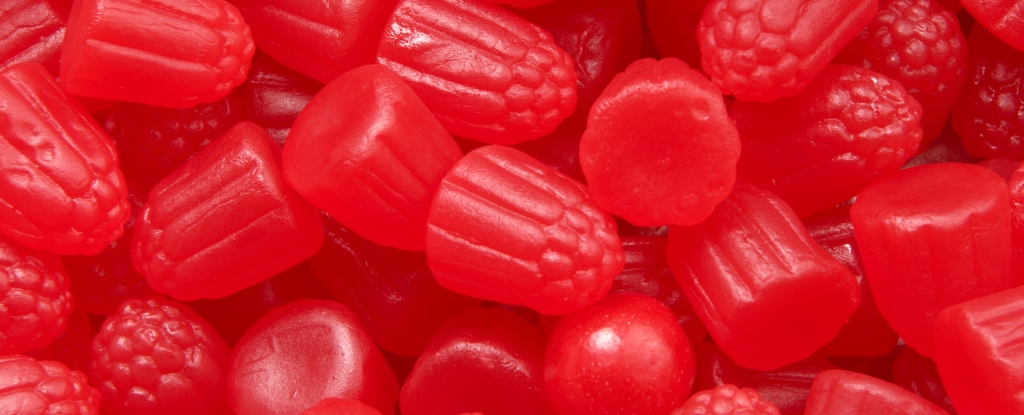Science Metaphors (cont.): Touchstone
Last Friday, Sarah used “touchstone” as a metaphor. I think she uses the metaphor — you touch a stone and see its landscape in time — in a way that’s poetically off-center from touchstone’s usual meaning. Which is a thing that’s solid, grounded, and reliable and which is the way I’ve used “touchstone,” because I […]


Last Friday, Sarah used “touchstone” as a metaphor. I think she uses the metaphor — you touch a stone and see its landscape in time — in a way that’s poetically off-center from touchstone’s usual meaning. Which is a thing that’s solid, grounded, and reliable and which is the way I’ve used “touchstone,” because I have a long-standing issues around grounding and reliability. A touchstone is what you refer back to when you’ve become uncertain; it’s reliable certainty, isn’t it, a truth in which you can believe and by which everything can be judged.
But touchstones didn’t start out as metaphors, they’re real things, originally dark and fine-grained rocks, like slate. They’re used as a test for the type and purity of a metal. Specifically, gold — like, you’re paying for gold here, is it really gold? is it pure or has it been cut with baser metals? You draw a line, called a streak, on the touchstone with a piece of the metal, then look at the line’s color. If the streak is gold, the metal is gold and the gold is pure. If the streak is black, it’s pyrite, fool’s gold. If the streak is white, it’s silver; copper-colored, it’s copper. The more copper that’s alloyed with the gold, the redder the streak. Alloys of silver and copper, of silver, copper, and gold; and of tin and lead, all have their own streaks.
Obviously, knowing which streak means which metal takes experience, comparison samples, and a fine eye. But given that, the test is pretty accurate. The Greeks used touchstones. The early medieval Northern Europeans liked their touchstones so much, they were buried with them. Geologists’ touchstones these days tend to be not slate but porcelain and their tests more complicated, but they still use “streak” to identify minerals; sulfur is yellow.
And now, when too many of our politicans and too much of the news media and most of our general fellow Americans are so enchanted with mis- and dis-information, plus flat-out lies, wouldn’t a civic touchstone be nice? A truth that we can count on? that’s real? that we can all see and agree on? Ok, so that’s not going to happen.
Then limit the touchstone to our own sweet separate selves. I do like it when science provides a metaphor that resonates with ordinary meanings and makes the world richer. And wouldn’t I like a touchstone, a mark, a streak by which I know what’s credible and certain? And oh my, don’t we all want certainty? something that’s right and always there? don’t we want that as much as we want food and water and not to have our homes burned down? We sure do.
_______________
Touchstone courtesy of the Science Museum Group‘s CC BY-NC-SA 4.0 Licence
What's Your Reaction?








































